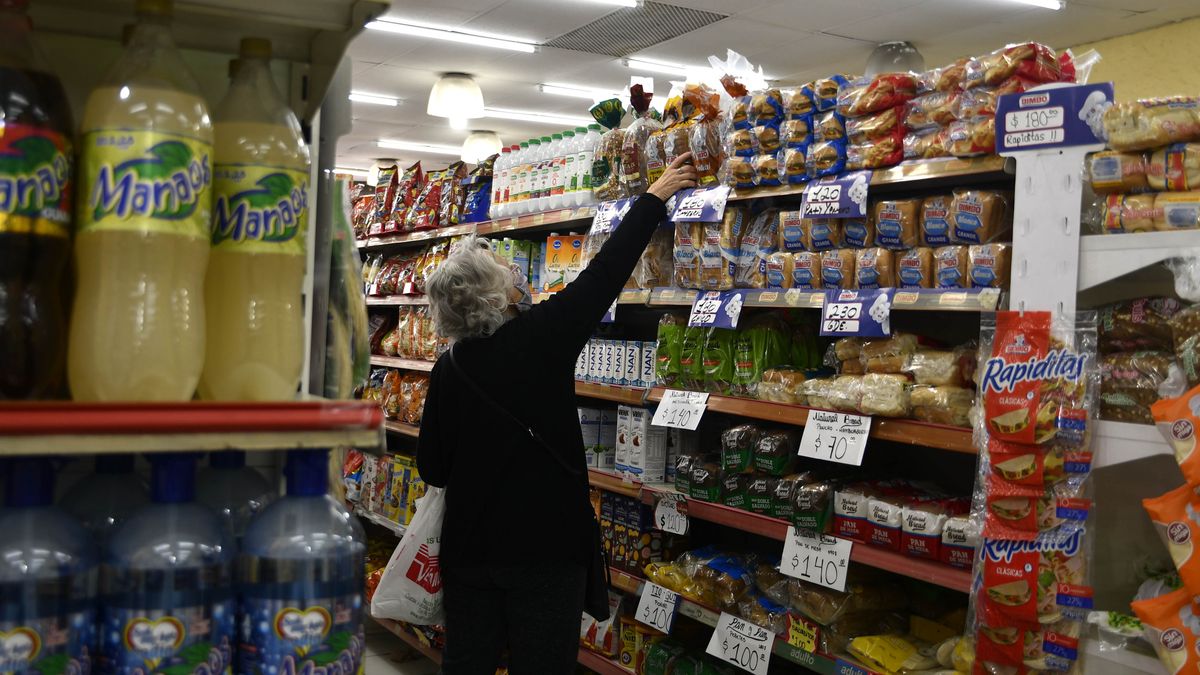“I hope to close this agreement and put it into operation on Monday, if not, we will apply the laws. I want to avoid that,” said Feletti, who indicated that if there is a counter offer, “we will evaluate it and on Monday we will sit down to close the agreement.” .
In the absence of an agreement, Feletti anticipated that the law of Catering and the Secretariat will have to move forward with “non-consensual maximum price policies.”
“Obviously if an agreement is not reached, we will have to apply the laws, which I tried to prevent because I believe in social agreements,” said the secretary, who explained that the greatest resistance is perceived in the producers, rather than in marketers.
After the decrease registered in August, inflation rebounded in September with a rise of 3.5% in the Consumer Price Index (CPI), which led to the need to put a brake on the rise in food, which has a strong impact on the middle and low income sectors of the population.
Feletti said that the attempt to order a price policy “generates discomfort”, after which he added: “if there is discomfort in the businessmen, there is more in the people.”
Likewise, the Secretary of Internal Trade anticipated the intention to advance with agreements in other products: “We want to avoid frustrations due to an immediate increase in prices in food, then we will advance in other sectors,” he said.
According to Feletti, the most immediate challenge is “to guarantee supply and prices for a good level of consumption in this last quarter”.
“I have spoken with businessmen in the sector, both marketers and producers, and asked them to earn by quantities and not by prices. They are not being asked to lose money, but to lower the weight of the food basket in wages “said the head of the Ministry of Internal Trade.
“What I want to prevent is that someone in the coming months, especially in the periods close to the holidays, has to leave a product on the gondola or in the cashier because they cannot pay for it, at a time when Argentina needs joy” , he claimed.
Therefore, an intense Monday is expected in meetings to bring the positions between the government and food producers and marketers closer together, since the opposite position of many representatives of the sector to any initiative that involves monitoring prices is recurrent.
The Supply Law in force in Argentina was sanctioned on June 20, 1974, at a time when there were shortages of goods due to the speculative attitude of food manufacturers and producers.
Feletti’s announcement received immediate support from grocery stores and the executive of the Marolio firm, Juan Fera, who announced that the company would accompany the government initiative.
On the other hand, for the president of the Argentine Chamber of Commerce (CAC), Mario Grinman, the price freezes “are aspirins that work for a little while, they calm the pain but the disease continues, it is a deja vu of continuing to do the same.”
Regarding the measures to contain the prices that the Government is carrying out, Grirnman said: “It is not authoritarianism, there is a lot of dialogue with this Government; the Government of (Mauricio) Macri never received the Chamber of Commerce, instead with President Fernández and we ministers meet a lot of times. “
Meanwhile, from the Argentine Chamber of Supermarkets (CAS) and the Argentine Federation of Supermarkets and Self-services (FASA) issued a statement on the freeze in which they indicated; “We assume the commitment to notify the authorities about non-compliance with prices, general conditions or supply.”
They added that this requires “a timely response on their part to continue accompanying the measures, in order to define responsibilities, since the sector is not the maker of prices.”
For his part, the deputy candidate Daniel Arroyo said that “the great issue that exists today is the price of food,” and considered that “we must go to a scheme of 400 small central markets.”
“You have to make the producer have direct access to the consumer,” he said.
Arroyo said that “the measures that Feletti is taking are going in the right direction”, and that “we must finish implementing the Gondolas Law”, while remarking that “in Argentina eating should be cheap because we produce food” .
David William is a talented author who has made a name for himself in the world of writing. He is a professional author who writes on a wide range of topics, from general interest to opinion news. David is currently working as a writer at 24 hours worlds where he brings his unique perspective and in-depth research to his articles, making them both informative and engaging.




